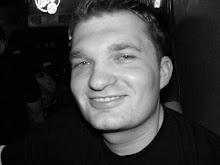I received a phone call the other night from an area code I did not recognize. Expecting a wrong number, I answered the phone and was shocked to hear the voice on the other end of the phone.
“Cliburn,” the voice said. “This is Taif.”
Taif was my interpreter in Baghdad. We had said our goodbyes almost four years ago, and I never expected to hear his voice again. But we were, and it felt just as natural as it had then. Taif was in a hotel in Baton Rouge, La. and had been in the U.S. for only two days. He was finally here, I thought. What no one talks about when discussing serving in Iraq is the guilt that one feels for being happy to leave the country and return to sanity while leaving behind the Iraqi friends that are inevitably made along the way.
I had felt guilty many times for leaving the country, and I felt terrible for Taif. Speaking to him, knowing that he was in the U.S., made me happy. Hearing him describe the hell he went through after I left did not.
Taif and his family were intimidated and targeted for murder for his working with the U.S. He and his mother eventually fled to Malaysia, where he lived for two and a half years fighting through the immigration process, before being granted entry into the U.S.
Speaking with him that night brought back a flood of memories. So much has changed since the hot days I spent with him in Baghdad, but hearing his familiar Iraqi accent reminded me of just how much has not. The camaraderie that I felt while deployed overseas will never go away, and the sights, smells and sounds of Baghdad will always be just a trigger away, for better or for worse. In this case, the flashback was a good one and timely as well.
I’ve been away from Iraq long enough to lose sight of perspective at times. For the most part, I credit the maturation that I experienced overseas with the big picture mentality that always keeps me grounded. I don’t feel sorry for myself, and I don’t feel poor, no matter what my tax return says.
Sometimes, however, I forget just how different life was for me in 2006 and for my friends there every day. Hearing Taif’s voice tell the story of how he got to a hotel in downtown Baton Rouge brought me back to Earth in a big way.
Life is good for me. I just got back from a trip to Italy, where I got engaged to the love of my life. I have a good job with a well-respected global company, and I graduate in May. I’m hoping to go to law school, and my fiancée and I are planning our lives together. I’m lucky, and I’m slightly ashamed of how often I seem to forget that.
After speaking with Taif, I sent my old squad a text message about the phone call. He called me and said that he had news of his own: Abas, our main interpreter, was also now in the U.S. and living in New York. My squad leader even had his email address to share.
Abas was our interpreter longer than any other during our time there. He would routinely take three or four different taxis to our base every day to throw off anyone tracking his movement, and we worried about his safety often.
Today, everything is O.K. though. They’re both safe and sound, and the relief that I felt made me realize that I had never really quit worrying about either of them. A lot of terrible things happen in Iraq and to Iraqis, both by Americans and Iraqis themselves, but lot of good things are done as well, by good people. Taif and Abas are good people.
It was good to hear that the U.S. had rewarded these men for their service to our country and theirs. I only hope that the government can find a little more room for the men and women who risked their lives protecting those of U.S. soldiers.




